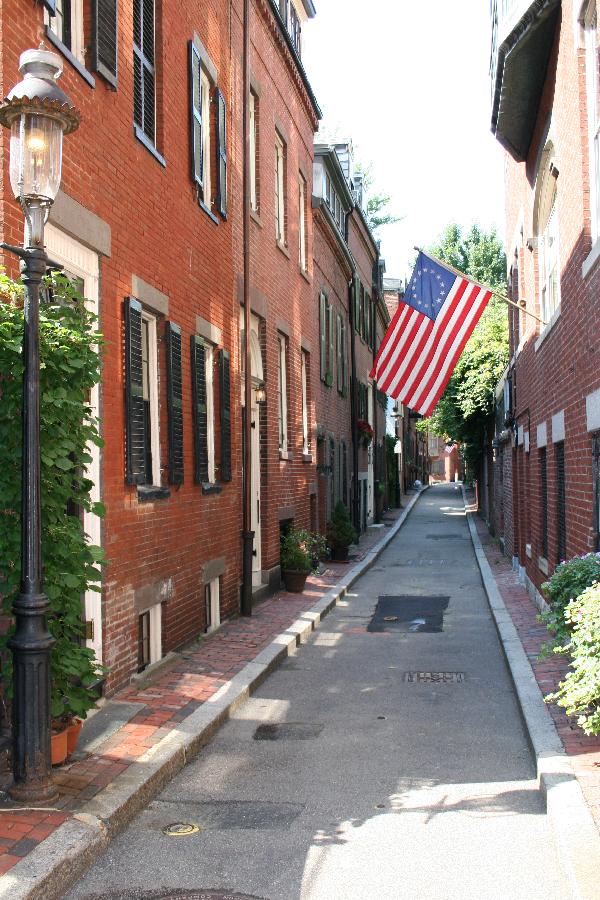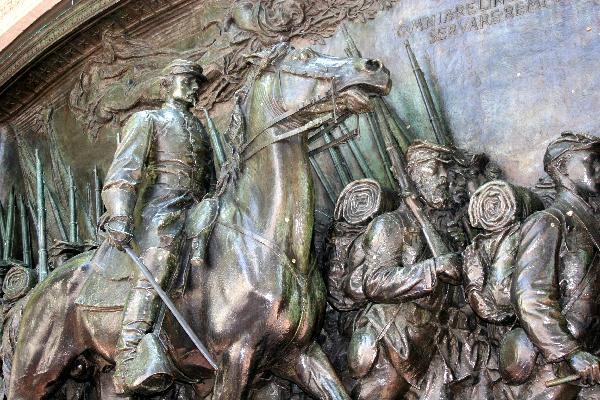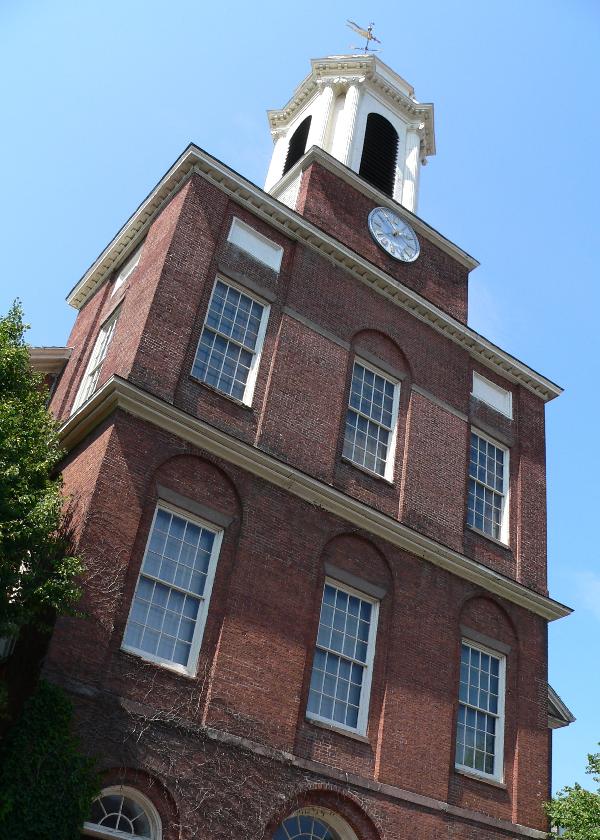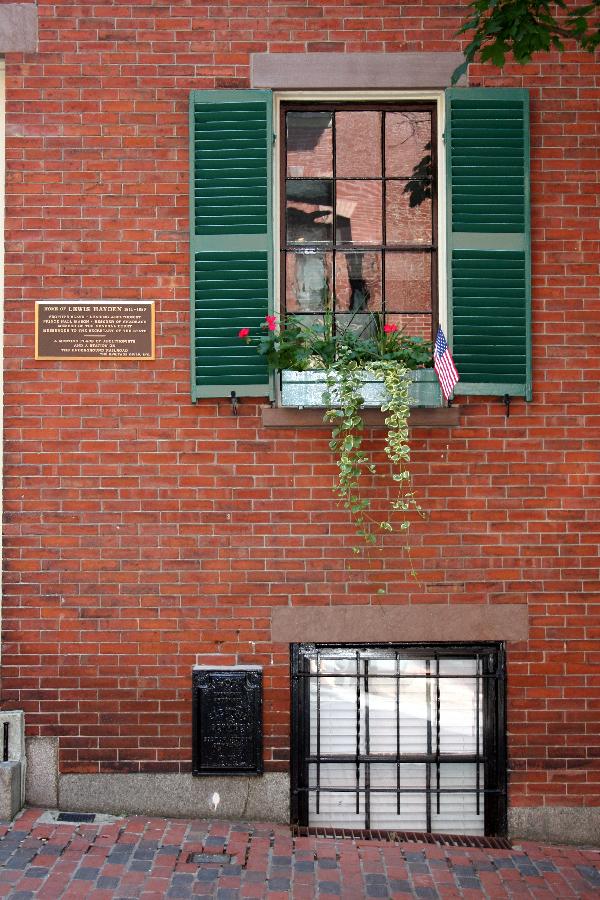NPS Website; Local Website; Museum of Afro-American History Website
 WHAT IS IT?
WHAT IS IT?Trail through Beacon Hill that commemorates the 19th Century community of freed African-Americans that lived in this section of Boston.
BEAUTY (6/10)
The Boston African-American NHS Heritage Trail begins at its most recognizable site, Augustus Saint-Gaudens' monument to the 54th Regiment, the fighting force of freed African-Americans immortalized in the film, Glory. Saint-Gaudens' stunning masterpiece captures the heroism and grandeur of these groundbreaking soldiers.
The rest of the Trail weaves up and down the streets of Boston's most elite neighborhood, Beacon Hill. The Sites on the Trail are among these stunning and oft-photographed redbrick Federal-style mansions. Trail Stops are largely private homes.
HISTORICAL INTEREST (4/10)
Who and what are being honored at the Boston African-American NHS? It is hard to say given the Site's decentralized approach; there is no Visitor Center (VC) and no accessible National Park Service (NPS) building. If you intend to walk the self-guided Trail you need to ask for the pamphlet while at another Boston-area NPS Site. Complicated stuff.
So who does the Park honor again? The lives of the whole neighborhood of freed African-Americans, the soldiers of the 54th Regiment who might have lived in the area and possibly the white Abolitionists who helped house fugitive slaves. The Site could benefit from some focus. As it is, it just celebrates a neighborhood and its everyday life, a place with as much significance and historical merit as areas in dozens of other northern cities.
CROWDS (7/10)
We were not the only ones milling about Beacon Hill reading the Park Trail brochure aloud to each other. We nearly crashed into a simpatico couple on Joy Street; both of of heads ensconced in the description of the Abiel Smith House. It is nice to know we are not the only history buff crazies. We were both supremely disappointed that the Museum of Afro-American History was closed and that the adjoining African Meeting House was completely encased for construction purposes in a Christos-eque wrapping paper.
 EASE OF USE/ACCESS (2/5)
EASE OF USE/ACCESS (2/5)Is Beacon Hill the most difficult American neighborhood to park in for a non-Resident? Yes. Do not drive here. There a a number of T (Subway) stations nearby: Charles/MGH, Bowdoin, and Park Street; each one at the base of one of Beacon Hill's corners.
Beacon Hill is a steep hill with cobblestone pavement and awkwardly quaint sidewalks. They're very historic. The prescribed 1.6-mile long Heritage Trail Route sends you up and then down and then back up the hill again so eat your Wheaties the morning before your trip.
Unlike the highly accessible Freedom Trail, most of the Heritage Trail's attractions are privately-owned and not open to the public. A small, not-so-handy sign outside a door or window is all the explanation you get. We felt uncomfortable taking photographs of peoples' houses and were startled when a retiring-age man in a Brooks Brothers polo shirt opened the door of the Lewis and Harriet Hayden House. We apologized for lingering outside his door and he went about his Sunday business.
CONCESSIONS/BOOKSTORE (4/5)
The Museum of Afro-American History's basement bookstore stocks many interesting and recently published titles, including 2005's Complicity: How the North Promoted, Prolonged, and Profited from Slavery, written by Hartford Courant journalists and Anne Bailey's 2006 African Voices of the Atlantic Slave Trade. The titles we could see focused entirely on antebellum subjects. Because the Museum was closed, our rating took into consideration the shelves that face the outside window and gave the rest the benefit of the doubt.
COSTS (5/5)
Walking around the Boston's unbearably posh Beacon Hill neighborhood is free, although at every turn you half expect a toll collector to appear. From Memorial Day through Labor Day, three free guided Ranger tours on Monday-Saturday depart from the Shaw Memorial at 10, noon and 2.
The privately-run Museum of Afro-American History, located in the Abiel Smith School building, is free and open everyday of the week from 10 to 4 except Sunday.
 RANGER/GUIDE TO TOURIST RATIO (2/5)
RANGER/GUIDE TO TOURIST RATIO (2/5)There we were at the Shaw Memorial, 10 am, waiting. A Boston movie tour passed by, then an Old Town Trolley tour, then a Duck Boat tour. No NPS Ranger. Turns out it was Sunday. Bad luck, us. Our misadventure hammered home the point that there is no Boston African-American NHS Visitor Center and no way to talk to a Ranger from the Site except during their guided tours. Couldn't the Boston NHP VC, located nearby, share some of its space?
TOURS/CLASSES (3/10)
The Park Brochure goes into great depth about each of the stops along the Trail. Its descriptions, while lengthy, are surprisingly lacking in excitement, interesting characters and in plot. Wow, this guy James Scott was a tailor and David Bartlett was a hairdresser. Louis Glapion was a hairdresser too? That's something else. Perhaps the Tour Guide gives these stories some life.
Strangely, a placard on a house on Joy Street declares it as the former residence of David Walker. Now we are getting somewhere. David Walker's Appeal, published in 1829 is one of the most controversial and important documents written by and for antebellum African-Americans.
The 76-page pamphlet called for immediate emancipation, defended and endorsed violent slave revolts, set off a wave of hysteria in Southern states and was castigated as too violent by white abolitionists. Walker was found dead at his Boston doorstep less than a year after the pamphlet's publication. City records site tuberculosis.
For unknown reasons, Walker's house and life is NOT INCLUDED in the Boston African-American NHS brochure or in its Heritage Trail. His omission is akin to the Freedom Trail not including Samuel Adams because his speech was too scurrilous and too revolutionary.
After getting worked up into that lather, it was probably a good thing that the Museum of Afro-American History is closed on Sundays. Its exhibit space, on constant rotation, currently remembers Boston's “Ambassadors of Abolition”. The last thing Michael wanted to hear at that point was a puff piece on the wonders of New England's morally omniscient white abolitionists.
 FUN (3/10)
FUN (3/10)Walking around high-priced real estate taking pictures is not our idea of fun. We are renters, not buyers. The Heritage Trail sounds like a good idea but it suffers from the inevitable comparison to Boston's other Trail, the Freedom one. When one Trail shows you the “Cradle of Liberty” and everything you learned on Pages 45-90 in your history textbooks, it is hard to concentrate on a Trail that recounts the lives of liverymen, hairdressers and chimney sweeps.
WOULD WE RECOMMEND? (3/10)
Only to those already bent on wandering through Beacon Hill. Why not grab a pamphlet and learn something about Boston's freed African-American community while you are trying to figure out in which house John Kerry and Theresa Heinz live. (It is 19 Louisburg Square.)
TOTAL 39/80
www.usa-c2c.com
© 2004-06